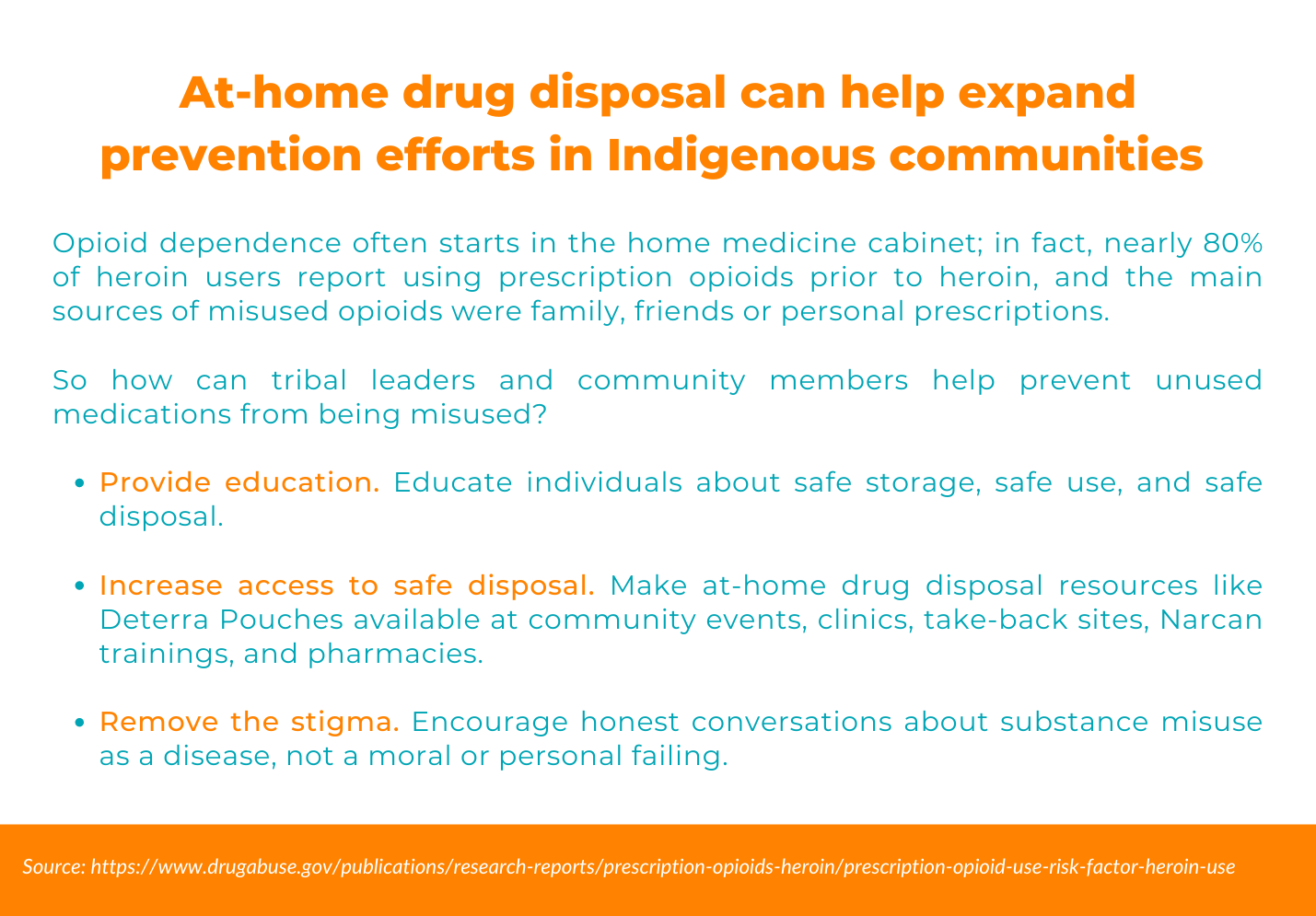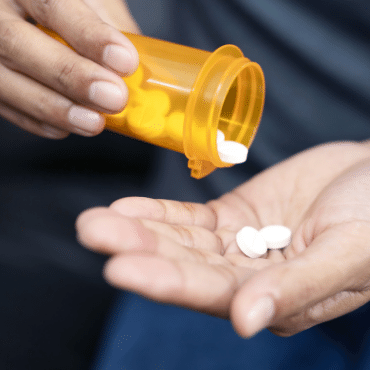Making Prevention a Priority in Indian Country
Learn how at-home drug deactivation can help prevent opioid misuse and environmental harm on tribal lands
By: Tom Rodgers, Global Indigenous People’s Council President
As we celebrate the legacy of America’s Indigenous peoples during Native American Heritage Month, we also must acknowledge that Native Americans’ history includes imposed geographic and cultural isolation, unequal access to resources, and lasting generational trauma. These issues contribute to disparate health outcomes and the outsized impact of substance use disorder (SUD) on Indigenous communities.
Nationwide, Native Americans are at least twice as likely as the general population to become addicted to drugs and alcohol, and three times as likely to die of a drug overdose. The COVID-19 pandemic has highlighted the unequal impact of substance misuse on Native populations, and opioid overdoses have soared to record-breaking numbers over the last 18 months.
In addition to the human toll of SUD and overdoses, prescription drugs are increasingly found in the natural resources that Indigenous communities hold sacred. Indigenous nations in the U.S. have lost 98.9% of their historical land base since Europeans arrived; what land is left is more vulnerable to the effects of climate change and is at risk of contamination from improperly disposed of medications.
Tackling these challenges requires concrete action to help prevent unused medication from contributing to SUD and environmental contamination. This includes an increase in outreach, education and prevention efforts that help fill the gaps in current programs. Many tribes have had success with using grant funding to distribute at-home resources like the Deterra® Drug Deactivation and Disposal System to educate individuals about the importance of eliminating opportunities for drug misuse and environmental harm.
Funding opportunities for at-home drug deactivation and disposal solutions
There are dozens of funding opportunities available to address the opioid epidemic, and an increasing number of them are specific to tribal communities. Prevention resources like Deterra are an eligible expense for many grants, and the Deterra Grant Guide can help you craft a grant application to include at-home drug disposal in your prevention plan. Deterra can also provide Value Added Services including custom postcards, labels, and surveys to help organizations track and report on the impact of their efforts.
Funding sources that tribal organizations can use to expand their prevention efforts include Tribal Opioid Response (TOR) grants, which are administered through the Substance Abuse and Mental Health Services Administration (SAMHSA). SAMSHA is requesting $50 million in fiscal year 2022 for these grants to address the opioid crisis in tribal communities by increasing access to culturally appropriate and evidence-based treatment, prevention, and outreach.
The American Rescue Plan, which will deliver $350 billion for eligible state, local and tribal governments to respond to COVID-19, is another potential funding source. Funds can address systemic public health and economic challenges that have contributed to the unequal impact of the pandemic and be used toward behavioral health services, overdose prevention and related resources.
Funding opportunities are ever-changing, so check with your local authorities about available grants in your jurisdiction and visit Deterra’s Funding Options page for links to more potential funding sources.

Preserving our communities through prevention and outreach
Substance misuse is a complex issue informed by personal and societal trauma and unequal access to behavioral health resources. Making prevention a priority honors our past by doing what is needed to preserve our future. Tribal leaders can help raise awareness about the important role that safe drug disposal plays in preventing substance misuse and make use of funding opportunities to provide effective, at-home tools to their communities.
***
About the Author
Tom Rodgers is an activist and advocate for Native Americans and tribal issues. He is the President of the Global Indigenous People’s Council and Founder/President of Carlyle Consulting.
Read Next
Learn more about how proper drug deactivation and disposal is making a difference in Indigenous communities.

RECLAIMING OUR COMMUNITIES And Land
At-home drug deactivation can help Indigenous communities protect individuals and the environment from the impact of drug misuse and improper disposal.
SAFE DISPOSAL IN INDIGENOUS COMMUNITIES
Learn how Oklahoma’s Cherokee Nation prevents drug abuse in tribal communities by increasing access to prevention resources like Deterra Drug Deactivation and Disposal Pouches.

Healing the Wounds of the Opioid Crisis
Native American advocate Tom Rodgers calls for proper drug deactivation and disposal to combat the impact of the opioid crisis on indigenous communities and the environment.
